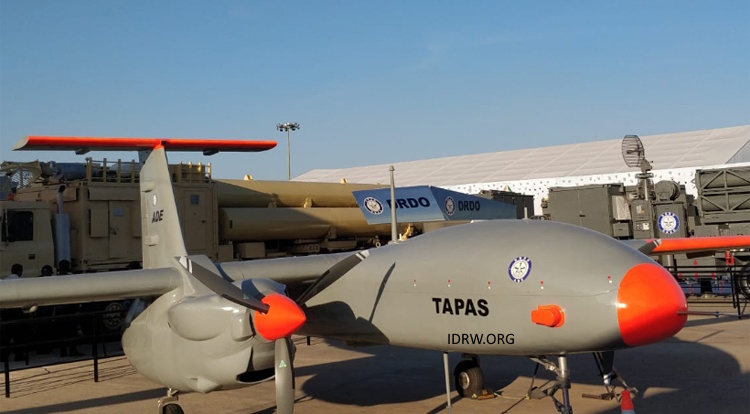SOURCE: AFI

India’s ambitious Tapas BH-201 drone project, designed for long-range surveillance, hit a snag when it fell short of the military’s stringent specifications. However, defying closure, the project is undergoing a remarkable shift – aiming to salvage and certify the drone for limited but viable capabilities.
Originally envisioned as a ‘Mission Mode’ project demanding strict adherence to specific operational needs, the Tapas BH-201 fell short in terms of altitude and endurance. This resulted in its demotion from the high-priority status in September 2023.
Unwilling to abandon the project entirely, DRDO’s Centre for Military Airworthiness and Certification (CEMILAC) has stepped in. This regulatory body is now undertaking a thorough evaluation of the drone’s core functionalities: aerodynamics, controllers, propulsion, and structure. These tests will determine if the drone can achieve airworthiness certification, a crucial prerequisite for any military deployment.
Despite falling short of its initial goals, the Tapas BH-201 has demonstrated some promising capabilities. Recognizing this potential, the Indian Navy has expressed interest in utilizing the drone for surveillance operations in the strategically important Andaman Islands. However, this hinges on acquiring the crucial airworthiness certificate.
This shift in strategy highlights a pragmatic approach. While acknowledging the missed targets, DRDO is attempting to extract value from the existing project, potentially providing the Navy with a valuable surveillance tool for the Andamans.
Here are some key takeaways from this development:
- Shifting Priorities: From a high-priority ‘Mission Mode’ project, the Tapas BH-201 is now focused on achieving core functionalities and airworthiness certification.
- Salvaging Potential: Despite falling short of initial goals, the project seeks to maximize the drone’s capabilities for specific applications.
- Navy’s Interest: The Indian Navy sees potential in the drone for Andaman surveillance, subject to airworthiness certification.
- Focus on Certification: Obtaining a valid airworthiness certificate is crucial for any further military deployment of the Tapas BH-201.
The Tapas BH-201 project’s future remains uncertain, but this new phase demonstrates a determination to extract value and potentially serve specific military needs. Whether it takes to the skies for the Navy or not, the project presents a valuable lesson in adapting strategy and maximizing potential within the realm of defense development.